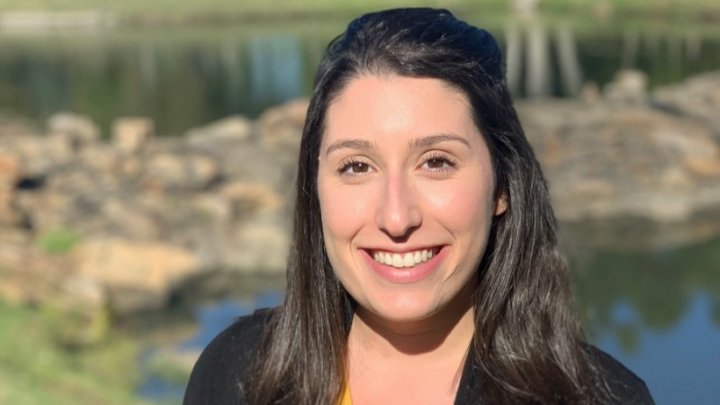Adams Family Scholarship: Funding Master Students’ Original Research

The Adams Family Scholarship was initiated within the School of Public Health in the academic year 2022-2023. It provides Masters of Public Health students opportunities to obtain funding to conduct new mentored research projects. Students were selected for the award through a competitive application process, three of whom are profiled below.
Master of Social Work/ Master of Public Health dual degree candidate Elana Metz’s research focuses on primary care access and use among people experiencing homelessness in San Diego. Her work has been the result of a collaboration with Father Joe’s Villages, a local non-profit and Live Well San Diego award winner that has helped people experiencing homelessness achieve permanent housing since 1950. “It has been both a challenge and an important learning opportunity for me since I did not work on research as an undergraduate student,” Elana explained. “I am grateful to my chair, Dr. Baek, and the staff at Father Joe’s Villages for their support throughout this process.” She submitted her master’s thesis this June and will be presenting a poster on the project at the APHA Annual Meeting this November.
Master of Arts in Latin American Studies and Master of Public Health dual degree candidate Theresa Perez has used the support of the Adams Family Scholarship to conduct on-the-ground investigations that aim to better understand the relationship between water insecurity and gender inequity and its impact on women in peri-urban communities in Lima, Peru. Theresa described her work as the principal investigator on this project as largely involving observing water sources and infrastructure, conversing with residents, and assessing the socio-economic factors that influence water access. She teamed up with local leader and fog capture expert Abel Cruz Gutiérrez, and urban planning engineering master’s student Enrique Montes who volunteered to help with community outreach and participant recruitment. “These collaborations facilitate a more comprehensive understanding of the issue,” Theresa explained, “[including] its underlying causes, aid in assessing the impact on the local population, and proposing sustainable solutions.” Theresa is currently preparing surveys and interviews so she may collect more data to help better understand experiences around water availability in Lima.
Master of Science in Environmental Health Sciences candidate Erica Hernandez’s efforts have been spent working on multiple air quality research projects with field work focused on the border communities of Otay and San Ysidro. With the help of the Adams Family Scholarship, she was able to expand her work into installing passive air samplers capable of monitoring the air quality near open trash burning sites in Tijuana. Modifying a technique to monitor environmental contaminants in water using silicone, researchers at Oregon State University discovered that commercially available silicone wristbands may be used for air quality monitoring. A team of SDSU researchers led by Dr. Penelope ‘Jenny’ Quintana established that these wristbands may be used to study individuals’ exposure to environmental toxicants. With the funding support from the SDSU Seed Grant Program and drawing inspiration from the guidance of Dr. Nicolas Lopez Galvez and a paper on social justice and community mapping, Erica began a partnership with the local volunteer-run organization Colectivo Salud y Justicia Ambiental who participated in the paper. “[Colectivo’s] involvement was instrumental in the research,” Erica explained. “It turned out that several of the volunteers lived in neighborhoods where [open trash burning] happens so a lot of our field deployments of the wristbands were able to be placed near the trash burning sites.” The samples collected in Tijuana are now being processed by Dr. Eunha Hoh’s laboratory using non-targeted analysis to identify other unknown compounds. Erica recounted driving past a roadside trash fire while en route back to San Diego from Tijuana with wristbands ready for processing. “I wasn’t even looking for one,” she explained, “so to me, that felt like validation that this was a good endeavor.

